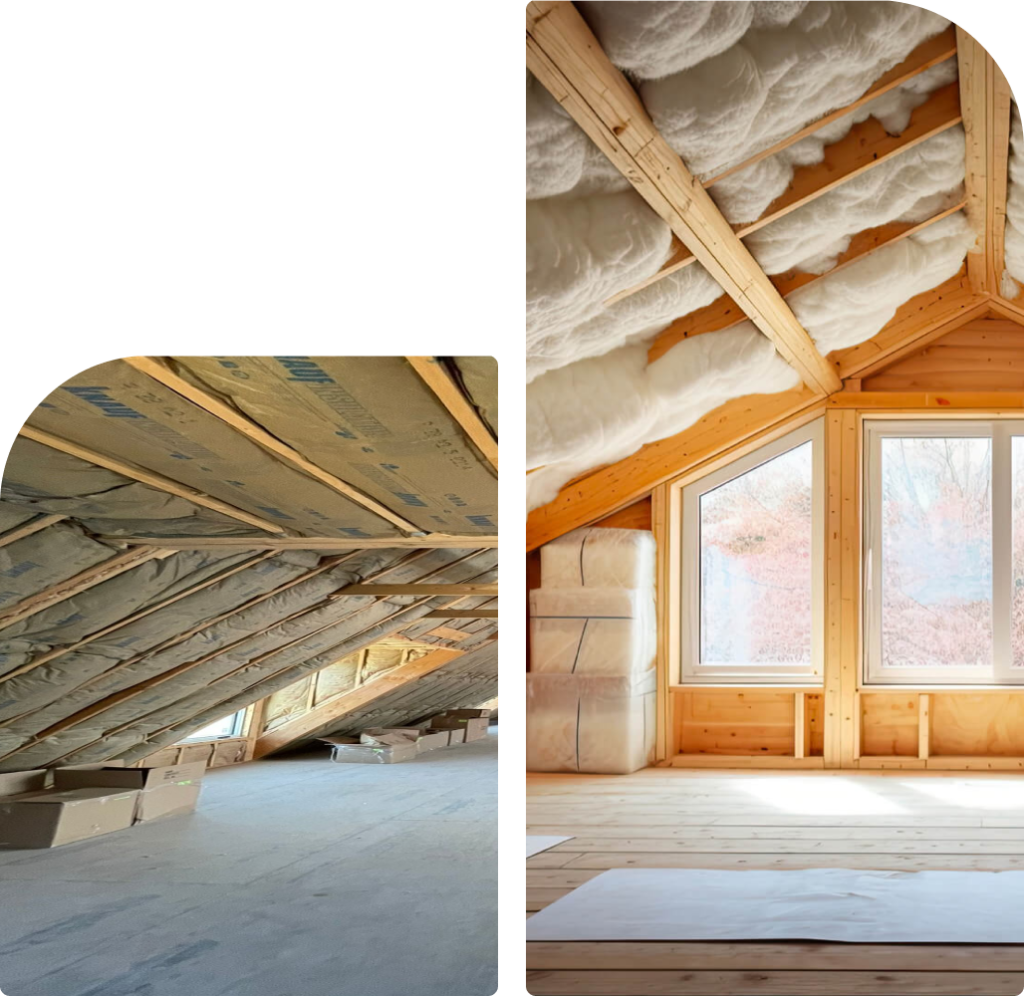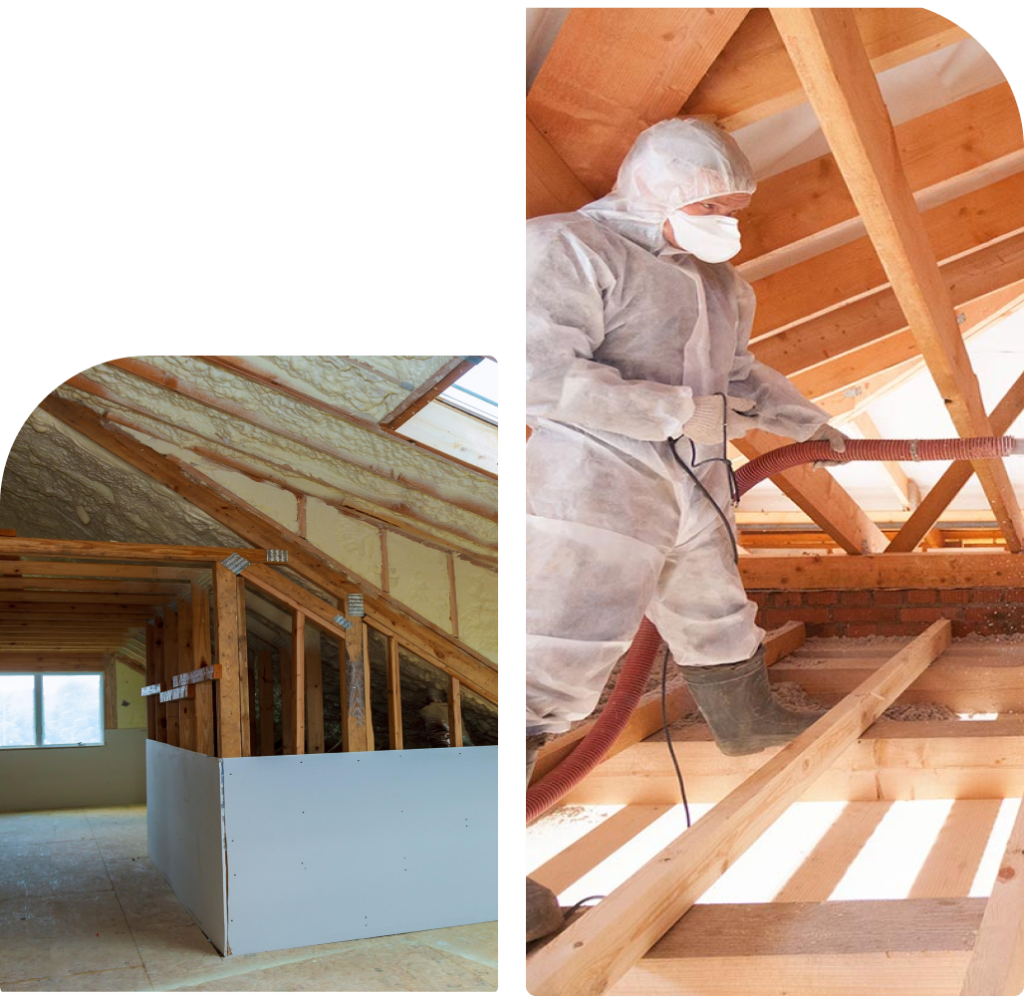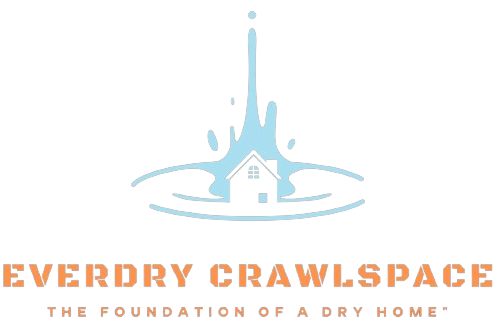ATTIC INSULATION
What is Attic Insulation?
Attic insulation refers to the material used to reduce heat transfer between the living space below and the attic space above a building. It is typically installed in the attic floor or on the attic ceiling to improve energy efficiency, maintain indoor comfort, and reduce heating and cooling costs. Common types of attic insulation include fiberglass batts, blown-in cellulose or fiberglass, spray foam, and rigid foam boards.
The primary purpose of attic insulation is to create a thermal barrier that prevents heat from escaping in cold weather and from entering in hot weather. In colder climates, adequate attic insulation helps retain heat inside the living space, reducing the workload on heating systems and lowering energy bills. In warmer climates, insulation prevents heat gain from the attic, keeping indoor temperatures cooler and reducing the need for air conditioning.


Who needs this service?
Attic insulation is essential for homeowners and property managers seeking to improve energy efficiency and comfort within their buildings. Homeowners benefit from attic insulation by reducing heating and cooling costs throughout the year. In colder climates, adequate insulation prevents heat loss through the attic, keeping indoor spaces warmer and more comfortable during winter months. Conversely, in warmer climates, insulation helps to block heat from entering the living areas below, thereby reducing the need for excessive air conditioning and maintaining cooler indoor temperatures. This insulation also contributes to a more consistent indoor climate and can enhance the overall value and appeal of the home.
Property managers overseeing residential or commercial buildings also require attic insulation to optimize building performance and tenant satisfaction. Properly insulated attics contribute to lower utility bills for tenants, making properties more attractive and cost-effective to occupy. Additionally, attic insulation plays a vital role in extending the lifespan of heating and cooling systems by reducing their workload and maintaining more stable indoor temperatures.
Our customer trust us
Confidence in every collaboration
FAQ
Frequently Asked Questions
Crawlspace encapsulation involves sealing your crawlspace with a vapor barrier to prevent moisture from entering. This helps reduce humidity, prevent mold growth, and protect your home’s structural integrity, leading to a healthier living environment.
Mold remediation involves identifying and removing mold-contaminated materials, cleaning affected areas with antimicrobial treatments, and addressing the underlying moisture issue. Preventive measures, such as installing a vapor barrier and dehumidifier, are also taken to prevent future mold growth.
We provide a wide range of crawlspace services, including:
– Crawlspace Waterproofing
– Vapor Barriers
– Mold Remediation
– Drainage Systems
– Sump Pump Installations
– Automatic Foundation Vents
– Crawlspace Door Replacement
– Crawlspace Cleanouts
– Encapsulations
– Attic and Subfloor Insulation
– Epoxy Crack Injection
– Down Spout Extension
– Gutter Cleaning
In addition, we offer financing options to make our services more accessible to homeowners. Contact us to learn more about our flexible payment plans.
A vapor barrier prevents ground moisture from entering your crawlspace, reducing humidity levels, preventing mold growth, and protecting your home’s foundation. It also improves indoor air quality and energy efficiency.
A drainage system, such as interior French drains, helps manage groundwater and prevent flooding in your crawlspace. This reduces moisture levels and protects your home’s foundation from water damage.
A sump pump removes accumulated water from your crawlspace, preventing flooding and reducing moisture levels. It collects water in a sump pit and pumps it out to a safe drainage area away from your home.
Dehumidifiers reduce humidity levels in your crawlspace by removing excess moisture from the air. This helps prevent mold growth, wood rot, and other moisture-related issues, creating a healthier environment and protecting your home’s structure.
Crawlspace cleanouts involve removing debris, old insulation, and any contaminants. This process helps maintain a clean and healthy crawlspace environment, preventing mold growth and pest infestations.
Epoxy crack injection involves injecting a high-strength epoxy resin into cracks in your concrete foundation. This resin fills and bonds the concrete, restoring its structural integrity and preventing water infiltration.
Replacing your crawlspace door with a secure, weather-resistant door helps keep out moisture, pests, and cold air. This improves the overall health of your crawlspace and protects your home’s foundation.
Cleaning gutters and extending downspouts ensures that water is directed away from your home’s foundation. This prevents water from seeping into your crawlspace, reducing the risk of moisture-related issues and protecting your foundation.
Yes, we offer flexible financing options to make our services more accessible to homeowners. Contact us to learn more about our financing plans and how we can help you get the services you need within your budget.
We proudly serve the Triad region and surrounding areas within a 60-mile radius from zip code 27127. This includes Winston-Salem, Greensboro, High Point, Kernersville, Burlington, Lexington, Clemmons, and many more. Contact us to see if we cover your location.
Certified by World’s best





Contact us
Contact us to schedule a free consultation
Getting a quote is easy! Contact us to schedule a free consultation. We’ll assess your crawlspace.
At Everdry Crawlspace, we’re more than just a service provider – we’re your partners in home protection. Explore our website to learn more about our services, read customer testimonials, and discover how we can help you achieve a healthier, safer, and more energy-efficient home.
Explore
Contacts
336-947-3055
mark@everdrycrawlspace.com
Winston Salem North Carolina
